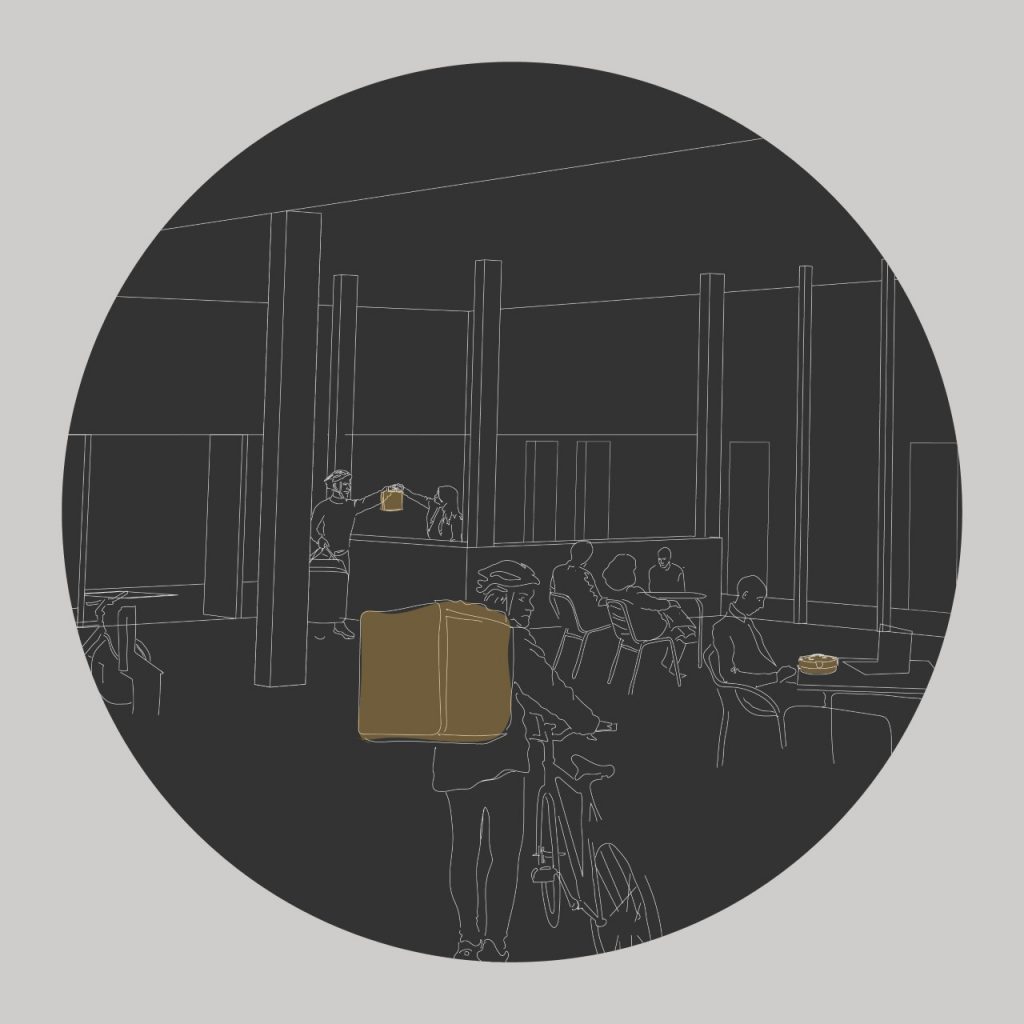Project Lead
James Muldoon, University of Exeter
Contact: j.muldoon@exeter.ac.uk
Supporting Partners
Autonomy Think Tank, Co-operatives UK, CoopCycle
Challenge
Food delivery platforms have changed the way we eat. The market for food delivery via platforms is £500m in London alone and is growing at a double-digit rate. However, through technical and legal innovations, they have managed to bypass the UK’s existing labour laws. This has been a central feature of the extractive delivery platform business model. There are, however, alternatives.
Platform co-operatives are perhaps among the most successful and widespread of these alternatives. Through this model riders own and democratically control the business. Assets and profits are shared between members which takes work arrangements out of the hands of unaccountable tech companies.
This project aimed to develop an understanding of the challenges facing a food delivery platform co-operative and to co-design principles, strategies and systems to overcome these challenges.
Delivering Rights: Alternatives in the Online Food Economy
The project produced the paper ‘Delivering Rights: Alternatives in the Online Food Economy’ looking at food delivery cooperatives as alternatives to the existent food delivery platform model.
The report notes the various problems with the current platform system, including tendency to monopoly, poor working conditions and exacerbated inequality. An alternative path is tracked, via a proposal for a food delivery cooperative, that retains the various benefits of the platform model but integrates more equal outcomes.
New urban infrastructure is proposed, from rider service stations, rest and meeting zones, and dedicated dispatch zones. They produced a ‘How to Launch a Food Co-operative’ guide for setting up a food delivery cooperative, in collaboration with CoopCycle and Cooperatives UK.
Working with food co-operatives
To create the two reports they engaged in an initial literature review on platform co-operatives to learn from existing theoretical approaches and reviewed the literature on food delivery platforms in order to understand why these workers were looking for a more ethical alternative.
Following this initial literature review they reached out to new platform co-operatives in the sector through project partners Co-operatives UK and the European federation, CoopCycle. These two organisations put us in touch with all of the new co-operatives in this sector who also became partners in this collaborative project.
The research team engaged with and gathered data from five UK based co-operatives: the Doorstep Collective in London, Chorlton Bike Deliveries, Manchester CoopCycle, the York Collective and Bristol CoopCycle. They conducted semi-structured interviews with members from each of the co-operatives and gathered data from them about their business operations.
Outcomes
Alongside the two reports published with Autonomy, the project worked with a London co-operative Wings, a collective of delivery riders who came together to deliver free food parcels during the Covid pandemic. Through this work this co-operative was awarded a large start-up grant from Islington Council.
Future Directions
Through this work they hope to continue working with these co-operatives and producing more studies of their journey. The PI of this project will be writing a Monitoring and Evaluations report of the six month trial of the Wings Co-operative with Islington Council which will be used as an evidence base for more grants from local councils in the future.

